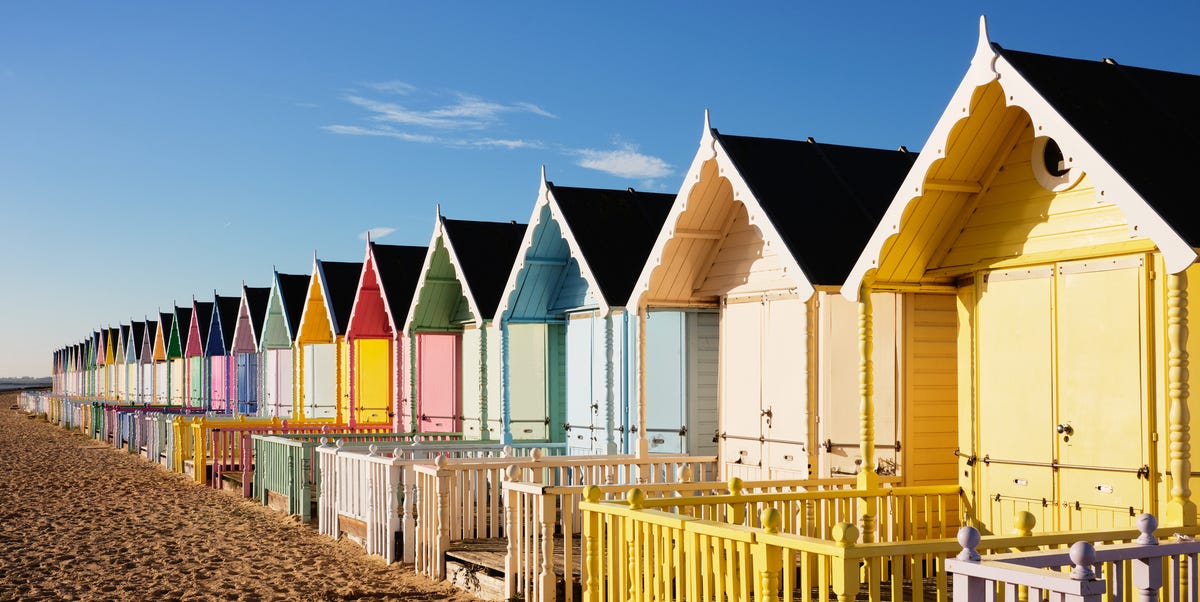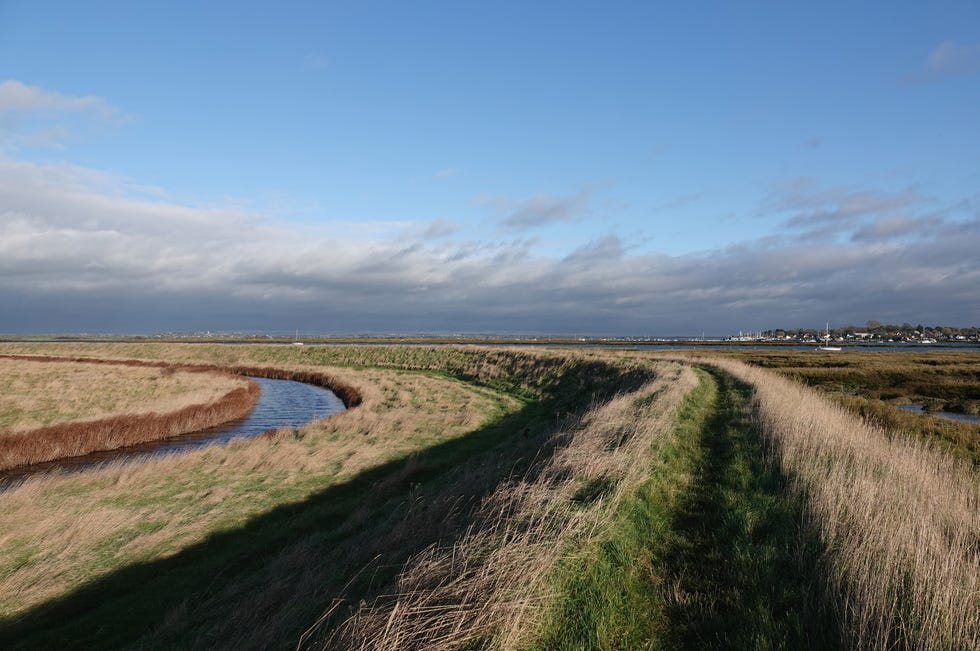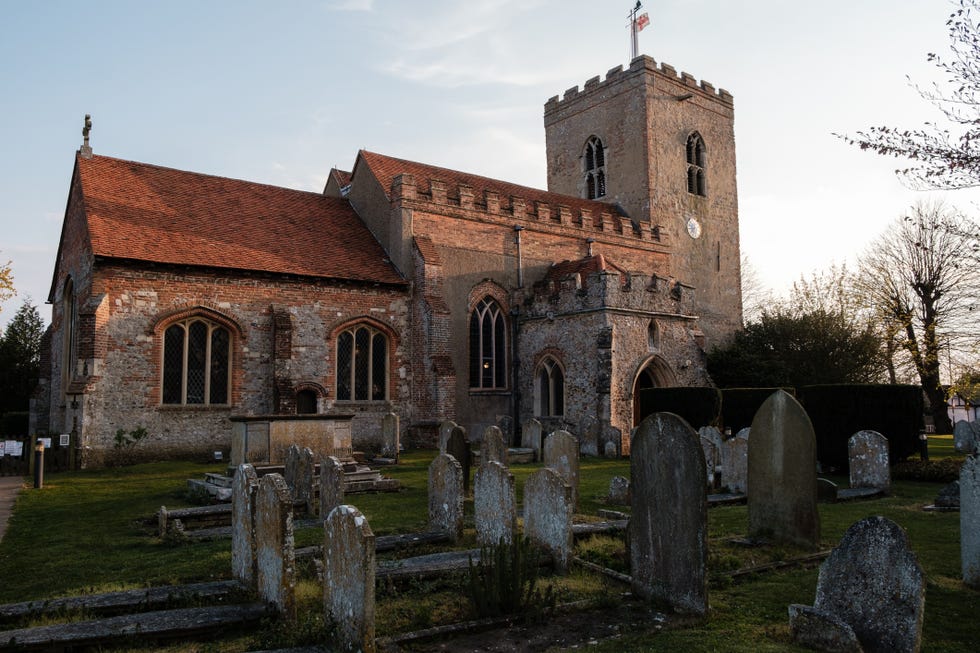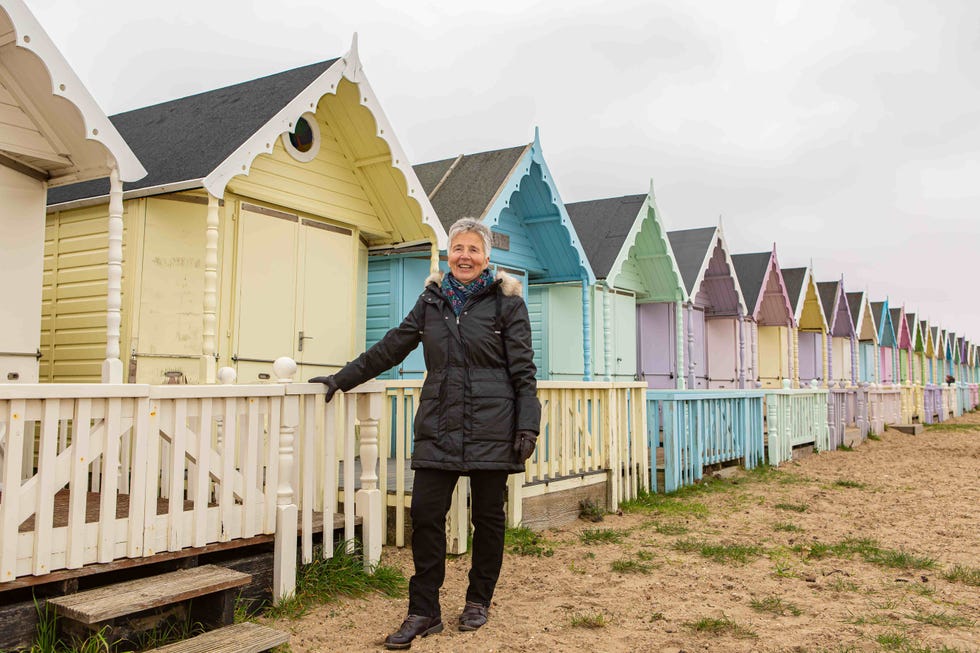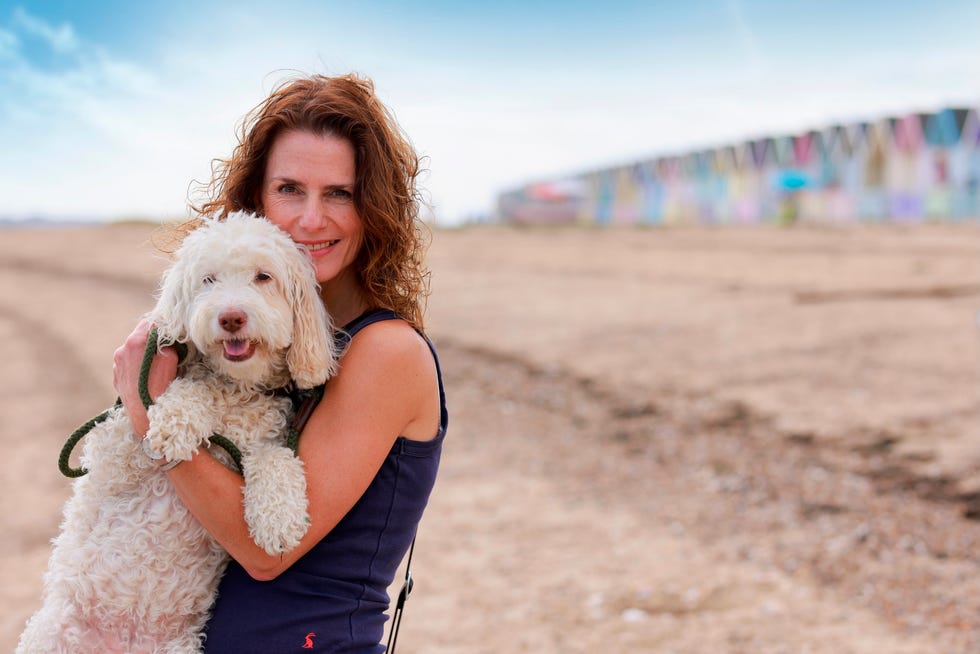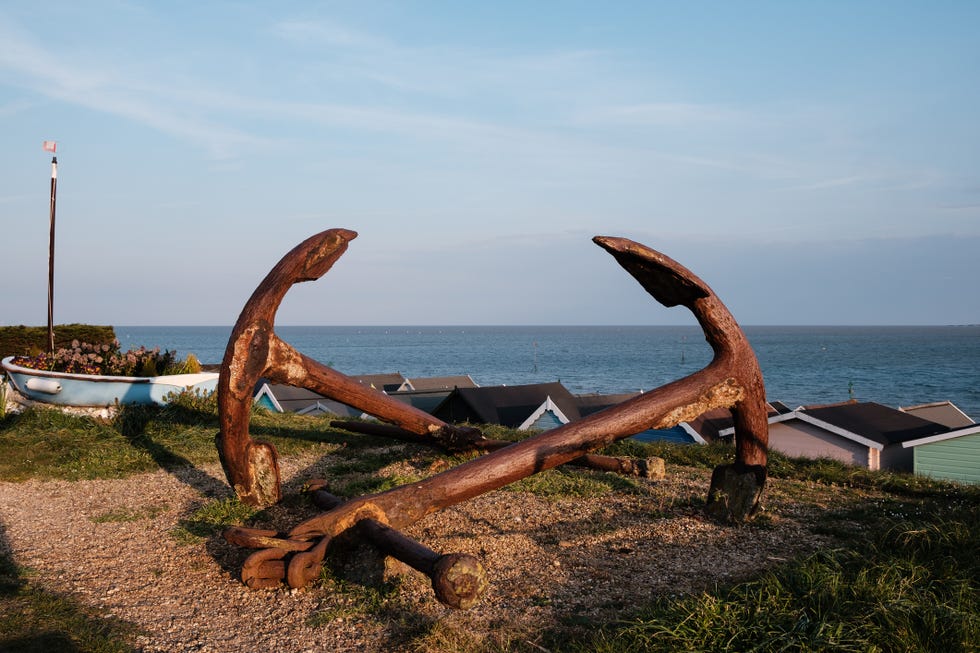In Great Britain, we’re an island nation – although we don’t notice it most of the time. However, one small cohort are regularly reminded of this fact – the 6,000 residents of Mersea Island, located on the Essex coast.
A handful of times a month, when the tide rises above 4.5 metres and water submerges the ‘Strood’ (the causeway leading to and from the area), Mersea is fully cut-off from the mainland for up to one and a half hours, forcing residents to wait until the water subsides.
Mersea is one of 43 tidal islands in the UK and located about two hours northeast of London. Famous for its sprawling row of colourful beach huts, the island is split between West Mersea, where most people live, and East Mersea, which is largely covered in farmland.
The unique appeal: a sense of tranquil isolation and a close-knit, welcoming community brought together by the tide.
Retiree Steven Bannister swapped life in Kent for Essex nine months ago. Having first discovered Mersea on Escape to the Country, he describes the island as an “old-fashioned 1980s sleepy seaside town” in the best way.
When Steve plans to do a big food shop or visit a friend, he crosses the Strood and drives the 23 minutes up to Colchester (58 minutes by train), but otherwise, he says, there’s no real reason to leave.
He tells Country Living: “Occasionally, you’ll venture out because someone’s recommended a nice place in the country. But by and large, you don’t need to leave the island.”
If residents do want to leave, they refer to a tidal calendar, which predicts how high the water will rise on a particular day.
Apart from one incident, when Steve was new to the island and found himself landlocked on his way back from a golf match, the cut-offs haven’t affected him much. He explains: “It’s not a big deal, and if I’m honest with you, I normally don’t bother checking [the calendar] because we have all of the convenience stores.”
Despite having no hospital or secondary schools, but the island is home to most other essentials, including a Tesco Express and a Boots, restaurants, pubs (“the food quality is excellent”), a community centre, a petrol station and a primary school. For the 66-year-old, however, it’s the independent businesses, like the butcher and bakery, that make living here worthwhile.
“It’s the local shops that really do it,” he says. “I have my hair cut locally in the Mersea Clipper. I want to use the community and I want to use the businesses. It may not be the ‘world’s best’, but that’s not the point. He remembers me. He’s just had a knee replacement, so I messaged him to say, ‘how’s it all gone?’ I think this community aspect is a very important part of where you live.”
In fact, according to Steve, the extraordinary warmth and openness of the community is what gives the island its appeal.
He says: “In Kent, it takes you 10 years to integrate into a community, you know, going to the local pub, you’ve lived there for five years and it’s still not easy to acquaint yourself with the locals. But in Mersea, everyone welcomes you from day one.”
It’s tempting to assume that this tight-knit community might be the result of a certain sense of isolation caused by the regular cut-offs from the mainland – however short and minimally invasive they may be.
Hilkka Fraser, another Mersea Island resident, is inclined to agree. The 75-year-old retiree – who moved from Finland to Essex in her 20s and has been living on Mersea Island for just over a year – thinks that the area’s cut-offs have an effect on how its residents come together.
She says: “It is an island sort of community; people make a lot of their own entertainment. I just feel there’s a lot of very able people who make music and other things. There are a lot of things happening that are community-based and people sort of enjoy each other’s company in that way. Other areas where I lived, maybe I haven’t felt that kind of community effect.”
The tide is not only regarded as a non-issue (though Hilkka shares she heard of one person who couldn’t make it work and moved away), but actually seems to be a beloved feature. “A lot of the locals who’ve been there a long time, I would think they would very much object to having a bridge,” Hilkka says. “I mean that would change the community, that would change the island.”
Hilkka views being at the mercy of nature like this as something positive. “We think that everything should always work [when we want it to], but sometimes it’s good to take time out and wait for nature to take its course.”
It is arguably this acceptance and connection to nature that makes Mersea Island a unique place. Life here is slow and intentional; Hilkka’s favourite activities include long walks, cold-water swimming and, when visitors make their way to the island, people-watching.
“It’s not like other beach towns, with busy activities or amusement arcades,” says 50-year-old Andrea Bilton, who works for an investment company and has lived in Mersea since July last year, “it’s much more catered for simple pleasures like sailing, crabbing, lovely dog walks or just chilling on the beach.”
The prevailing sense of calmness makes the island a great destination for both those in pursuit of a permanent quieter life and those looking to take advantage of Mersea’s long shorelines for the weekend.
“The beaches are very open. You can take your dog on the beach all year round,” says Steve. “There’s lots of walks and cycling, and what I’ve noticed is that everyone you walk past says either ‘good morning’ or ‘hello’, which is a nice touch. It just takes you back 20 years perhaps, you know, when everyone was a little more civil rather than either head down or talking on the phone. So it’s got that nice old-fashioned English feel about it.”
It’s hard to imagine anyone who wouldn’t enjoy a trip to this sliver of land that welcomes everyone with open arms and offers a true sense of escapism – although Hilkka can think of a type of person that might want to steer clear: “I suppose somebody who hates water,” she says with a laugh.
For those happy to take the plunge with a visit, however, West Mersea has a large variety of beachside hotels, huts and holiday homes in store, perfect for soaking up the salty sea air.
